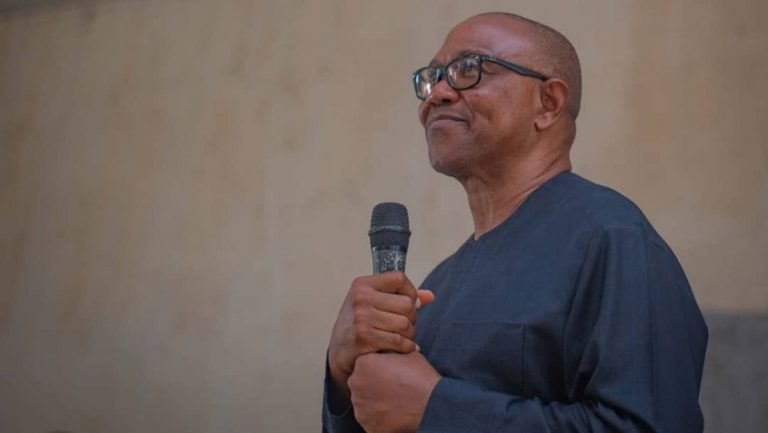As the Presidential Election Petition Tribunal prepares to pronounce a verdict on the contention of the losers of the 2023 presidential election that President Bola Ahmed Tinubu’s victory be overturned, it has become evident that the petitioners, notably Obi of the Labour Party, are hinging their success on the embrace of a flippant argument that voters in Nigeria’s Federal Capital Territory are given special status by the Nigerian constitution.
Obi, likewise Atiku, is arguing that President Bola Ahmed Tinubu’s failure to claim 25% of the vote count in FCT Abuja, despite his overwhelming majority in more than 2/3rd of the entire country, should nullify his victory. He is urging the court to accept a fresh but widely-ridiculed interpretation of Section 134(2)(b) of the 1999 Constitution (as amended) which says that the winner of a presidential election must secure 25% of votes cast in 2/3rd of all the states of the country, including the FCT.
Obi insists that the FCT be considered separate from the 36 states. In other words, the choice of other Nigerians must be subjected to the whims of Abuja voters. Legal experts of all hues and shades have dismissed this as frivolous. They point to Section 299(1) of the same constitution which states explicitly that the provisions of the constitution shall be applied to the Federal Capital Territory as if it is a state.
Put another way, when the constitution says a candidate must secure 25% of votes cast in 2/3rd of states, it means the 37 states of the country put together inclusive of the FCT. This is the basis of President Bola Tinubu’s declaration as the winner by INEC and why every legal analysis has predicted his eventual triumph in court.
That notwithstanding, the reliance of Obi on this “25% strategy” indicates his failure to substantiate his previous allegations of “widespread rigging and electoral malpractice.” Contrary to the claims, which some of his loyalists continue to uncritically peddle, his own witnesses in court attested to the free and fair nature of the election, with some hinting that it was in fact the best they have witnessed in the country.
Although Obi stormed the court with a deluge of printed materials meant to show that results were doctored, scrutiny by INEC and the APC’s legal representatives revealed that the vast majority of the tendered result sheets were not issued by INEC and that in the areas of dispute, the official result sheets were duly signed by all agents present, transparently collated by INEC officials and accurately reflected and announced at every collation point. In the other areas where Obi alleged malpractice, he did not field agents and so his dispute was based on hearsay, internet lies, and other concoctions.
He failed woefully to fault INEC’s conduct of the elections. His argument about iREV, a technological innovation meant to offer a real-time view of results collated, fell flat on its face as the Electoral Act made provision for alternative manual transmission in anticipation of likely technical glitches and other concerns such as hacking, which INEC suffered greatly in the days leading to the election and on the D-day itself.
Seeking to nail INEC, Obi paraded a purported staff of Amazon Web Services, the host of INEC’s servers, who was supposed to show that the servers functioned perfectly and that INEC’s delay in electronic transmission was not due to technical exigencies. But the witness cratered under cross-examination, revealing himself as a meddlesome interloper with neither the clearance nor technical ability to adjudge the state of INEC’s servers on Election Day. His testimony proved nothing.
The series of failures left Obi with nothing but the 25% boogeyman. But that will prove inadequate, according to legal experts following and analysing the case. Nigeria does not operate a collegiate electoral system. The votes of Abuja residents are not of any greater value than that of other Nigerians living in other parts of the country.

